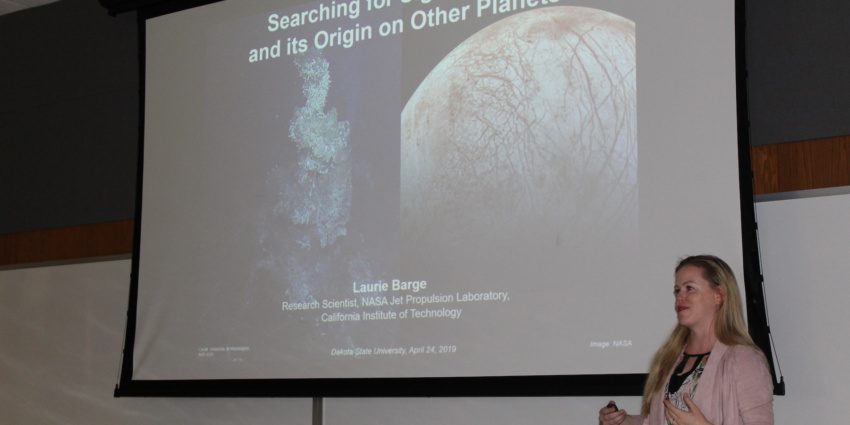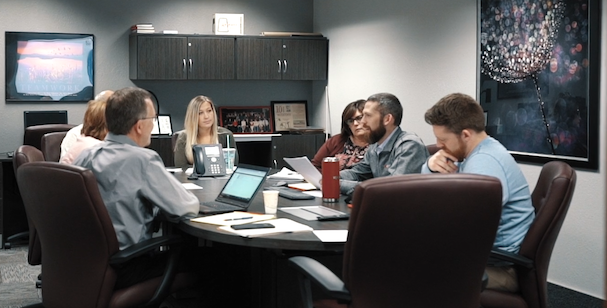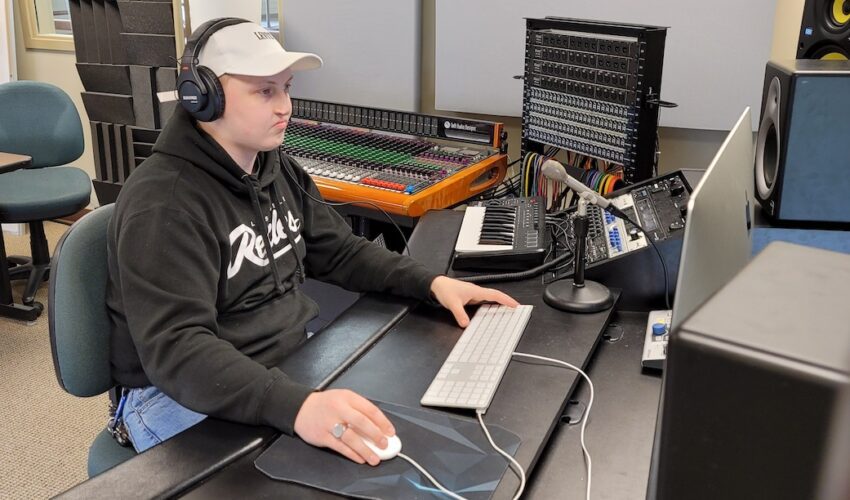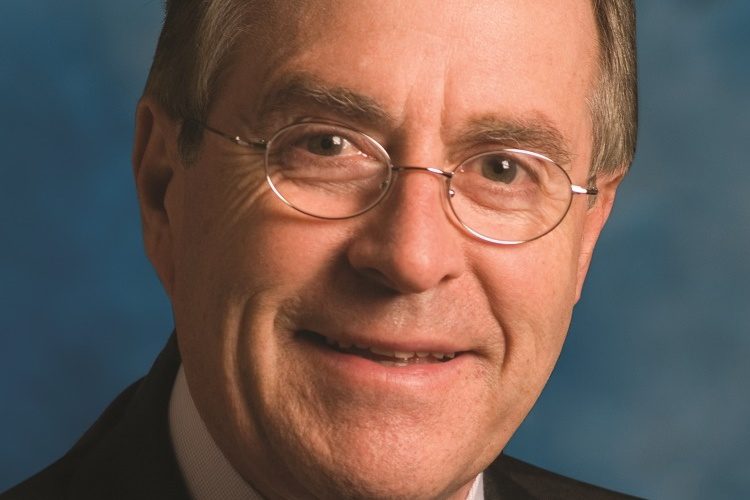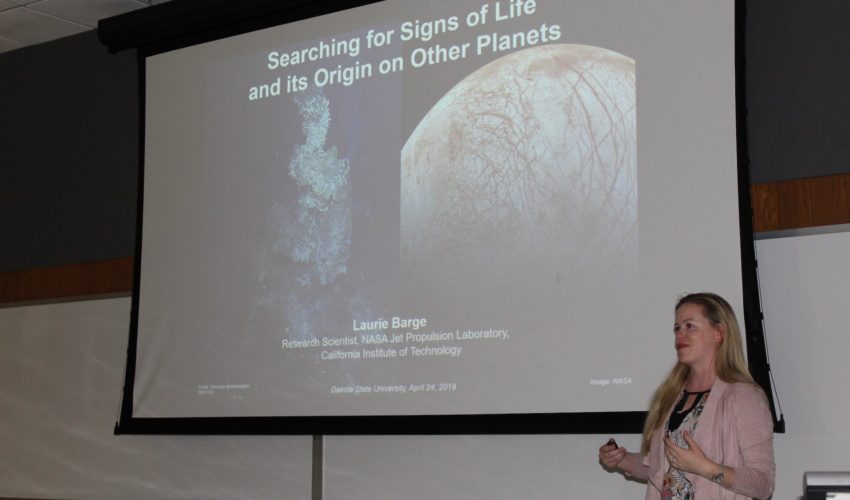NASA research scientist shares search for signs of life with DSU students
April 26, 2019
This is a paid piece sponsored by Dakota State University
Is there life on other planets? If so, how do we find it?
Students at Dakota State University got to discuss those questions this week with Dr. Laurie Barge, a research scientist at NASA’s Jet Propulsion Laboratory, during her presentation “Searching for Signs of Life and its Origin on Other Planets.”
Barge, who co-leads the Origins and Habitability Lab, focused her talk on life in the solar system and efforts to find it.
“We know life began somewhere on this planet, and, therefore, geology was involved,” she said. “So life today also utilizes those geological factors, like minerals, in it. We do experiments to try to figure this out. It’s important because if we can find out how life began here, then we can look for life elsewhere and understand where we should be looking.”
Barge has devoted her research to assessing whether life exists on other planets. That includes exploration with spacecraft as well as understanding Earth’s history and how life has evolved on our planet to yield such amazing diversity and resilience.
“I’m also very interested in exploring Earth’s ocean, looking at hydrothermal vents, getting samples from missions to the deep ocean and analyzing how we could apply that to exploring another world,” she said.
Through NASA, Barge works with undergraduate and post-doctoral students on research related to astrobiology.
“We often ask ourselves, what’s the important area of scientific interest? We’ll then try a bunch of different experiments in that area and see which ones can be further developed. After this, we’ll design our study and determine what to look for. It’s a bit of a shotgun approach, followed by narrowing down an intelligent pursuit. It can be challenging.”
She’s also an investigation scientist for the Mars Reconnaissance Orbiter mission, which arrived at Mars in 2006 and has been taking images of the planet ever since.
What, exactly, would give the indication of life on Mars?
“We would look for energy consumption and production in the way that life does. We could then use a combination of different instruments, all in the same spacecraft, and operate in different modes and try to select the most beneficial set of instruments to use for a given situation.”
Her research-driven approach to her work is part of what DSU wanted to highlight for students through the visit.
Research capabilities have been developing rapidly at DSU, said Dr. Michael Gaylor, associate research professor of chemistry.
“There was a desire to bring some sort of research-based mind-set to the science programs. Our president, Dr. (José-Marie) Griffiths, has heavily reinforced this idea. She’s very eclectic and wants us to expand, as does Dr. (Scott) McKay, our provost,” Gaylor said.
While DSU expands on these research initiatives, Barge encouraged students to be determined and think outside of the box no matter what their industry or program.
“It’s important to be ambitious and think big,” she said. “There’s a lot of possibilities out there that we don’t know about. Any industry will have elements that we normally wouldn’t have anticipated, and, for that reason, we should be much more open-minded.”
She also encourages students to grow and develop professional relationships.
“You also have to grasp the concept of managing different expectations from business partners because essentially you’re making an agreement. There’s a level of trust you must develop with business partners, and, especially when they come from different cultures, you have to respect the different levels of expectations and how the agreements work within,” she said.
Barge and Gaylor agree that students and business industries should take note of the skill sets that their teams have and use them to work together.
“I have very ambitious students, and teaching them to understand the extreme importance of collaborative teamwork is a big part of my mentoring process,” Gaylor said. “They have to know that everyone working together, the sum total of our cooperative effort, will always create something amazing.”
For students at DSU, having that motivation, empowerment and support from Gaylor has opened tremendous doors of opportunities for them.
“My research program has produced more than 20 students who are now published authors, and in the last two years, DSU’s had their first Goldwater Scholars. We are trying to get more awareness out there about all the research that happens at DSU,” he said. Goldwater Scholars represent the most prestigious undergraduate STEM scholarship in the country.
In late March, DSU also welcomed Dr. Diane Souvaine, a theoretical computer scientist, professor of computer science at Tufts University and chair of the National Science Board, which is the governing body of the National Science Foundation, to the campus during its annual Research Symposium.
Throughout the academic year, DSU continues to conduct research projects with students and faculty.
“Our research area is growing,” Gaylor said. “Things are happening on campus where many students and faculty throughout our colleges and programs are contributing to these research ideas. It’s very exciting, and indicative of where DSU is going.”

